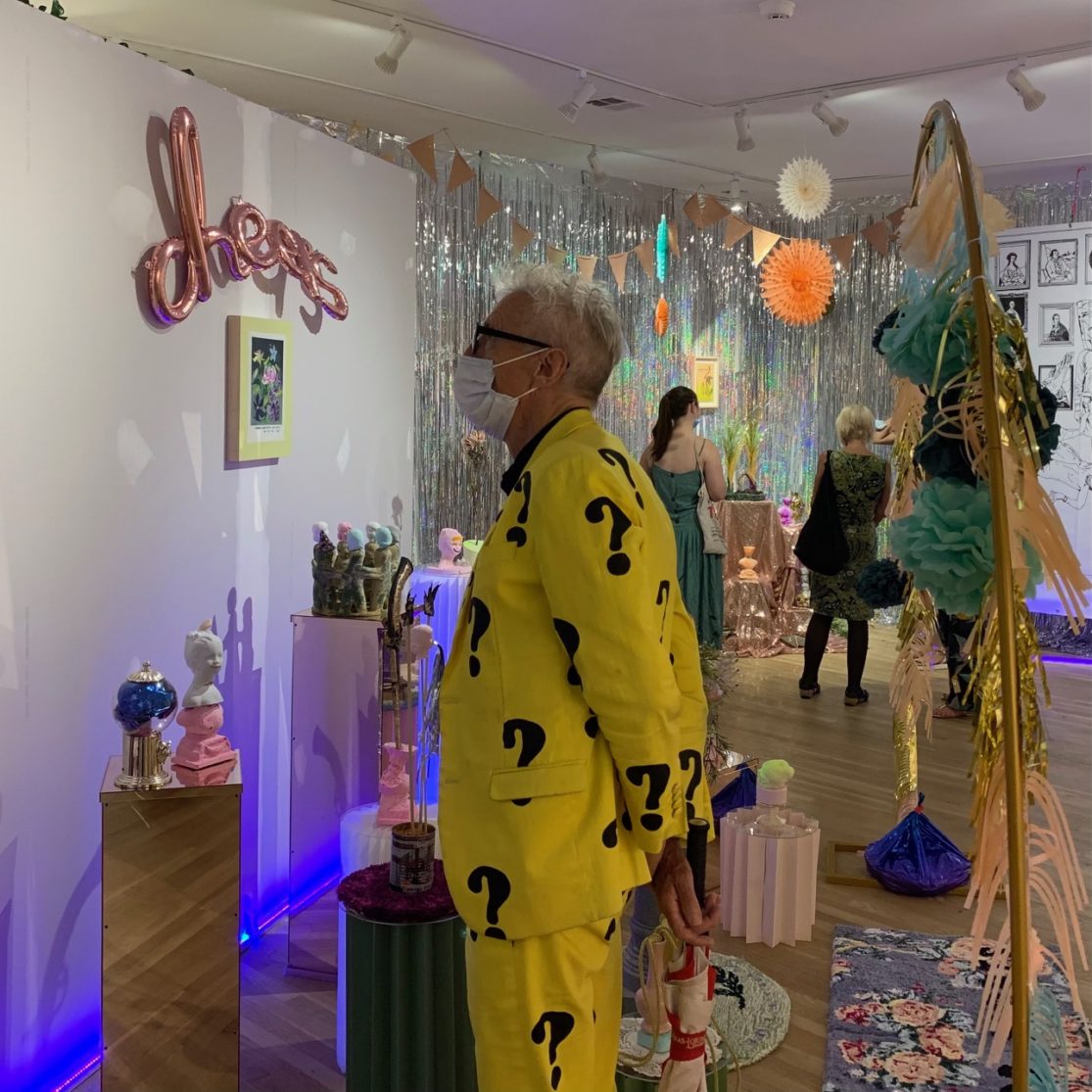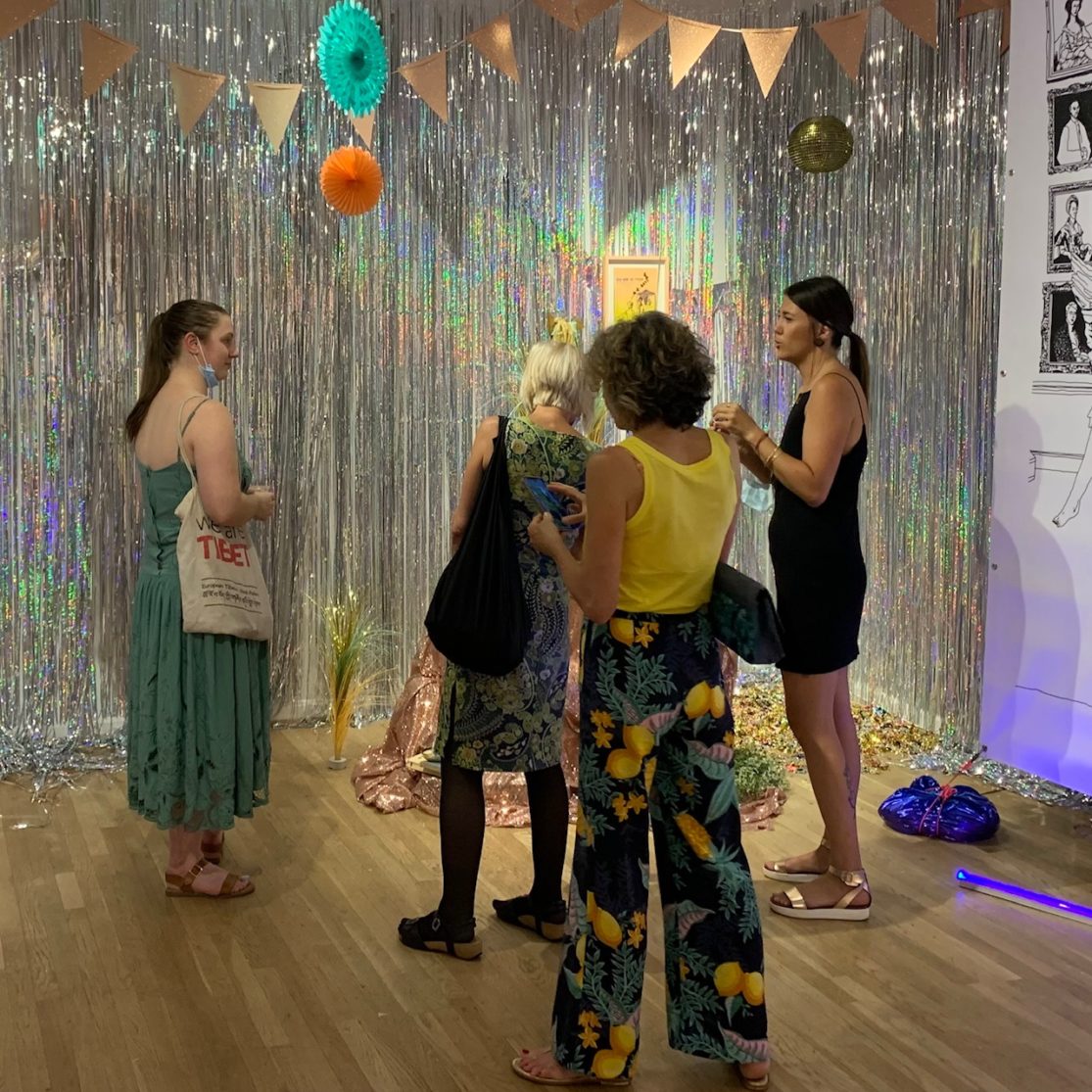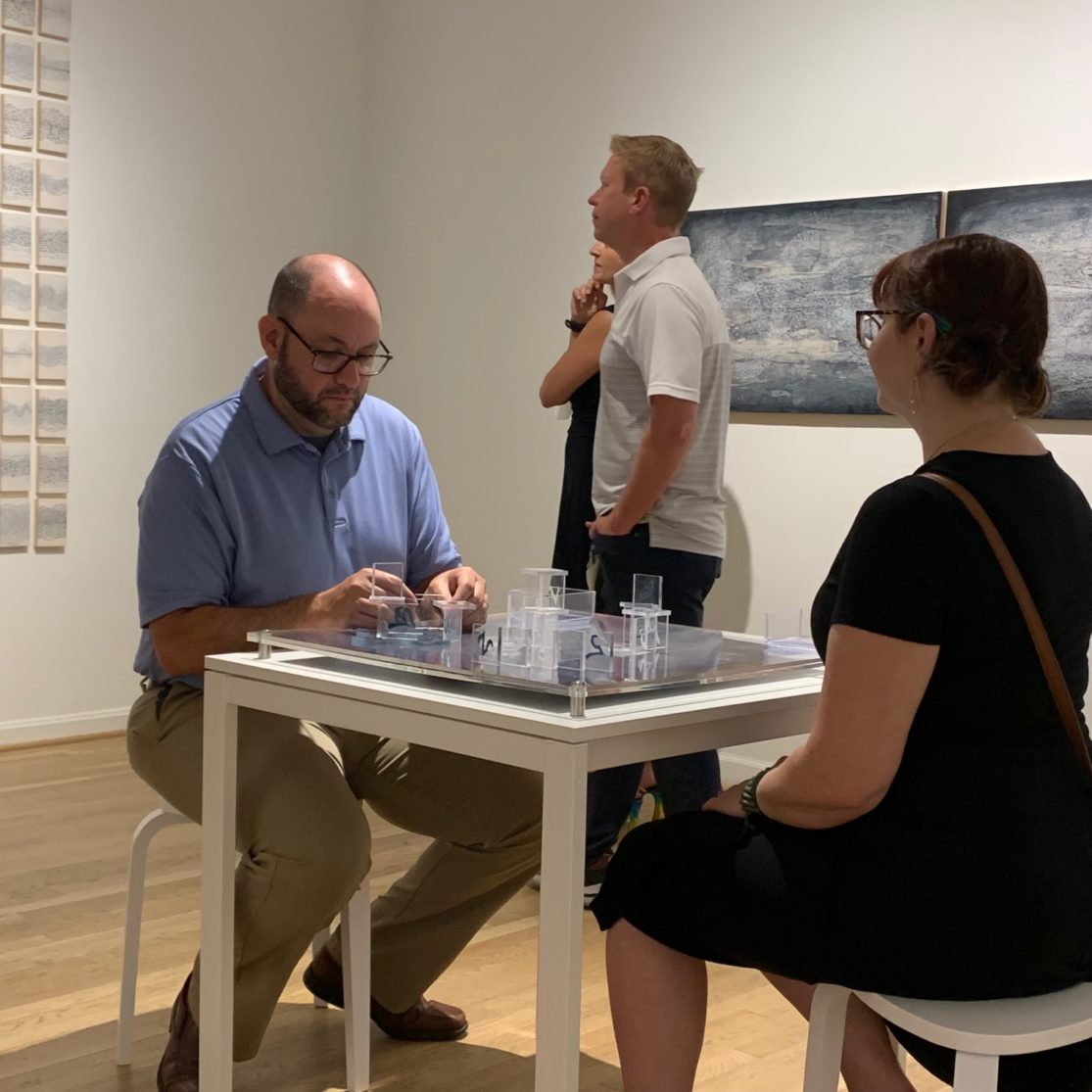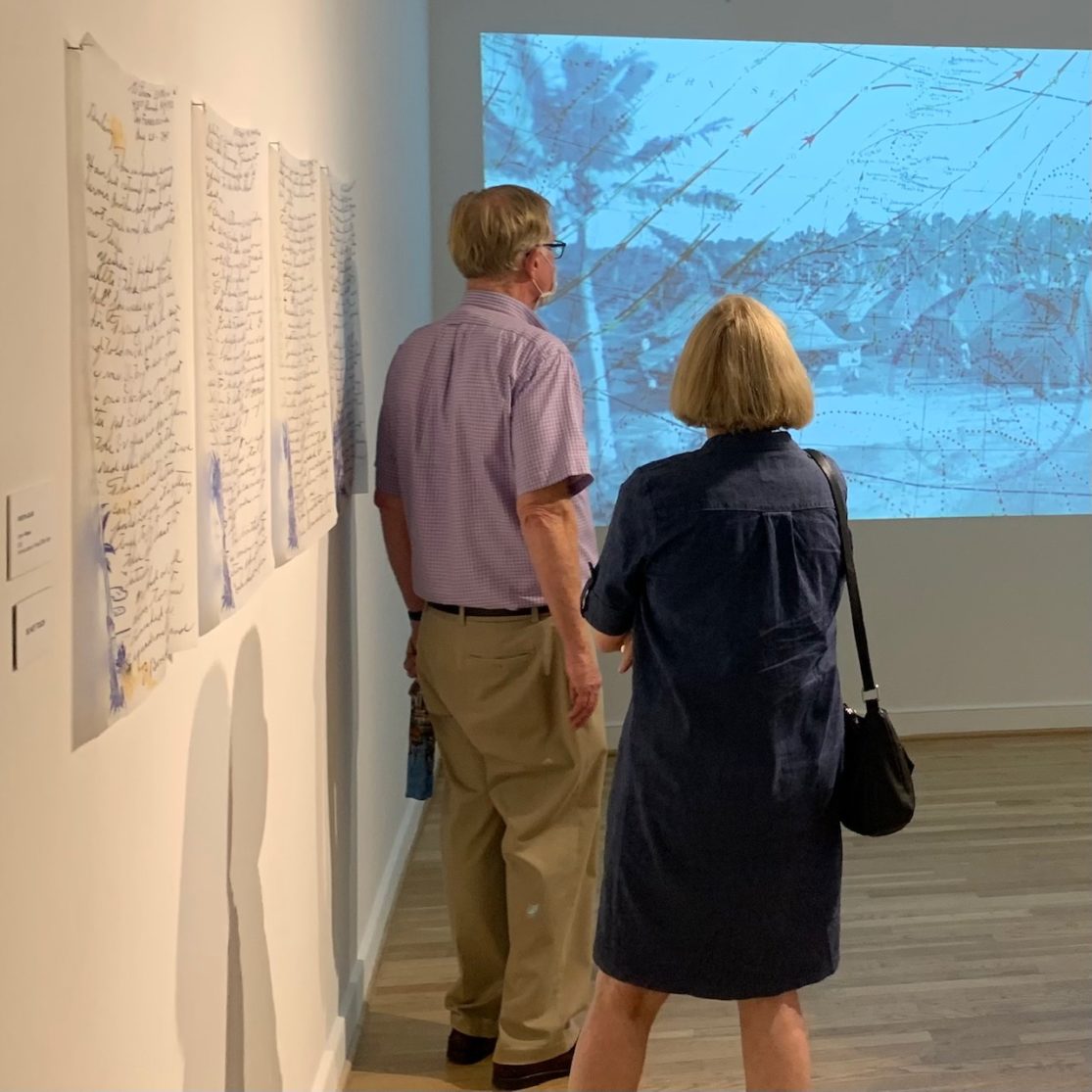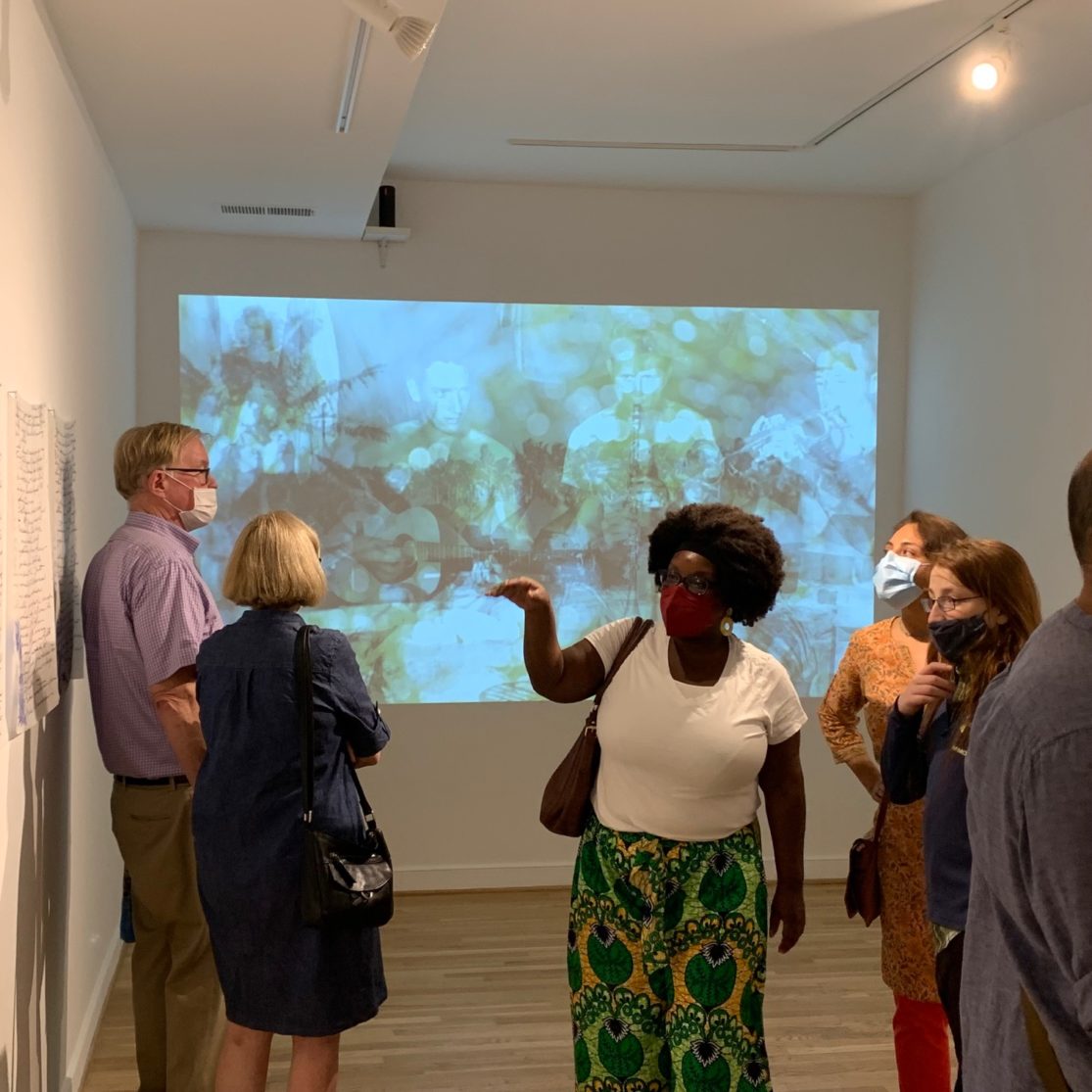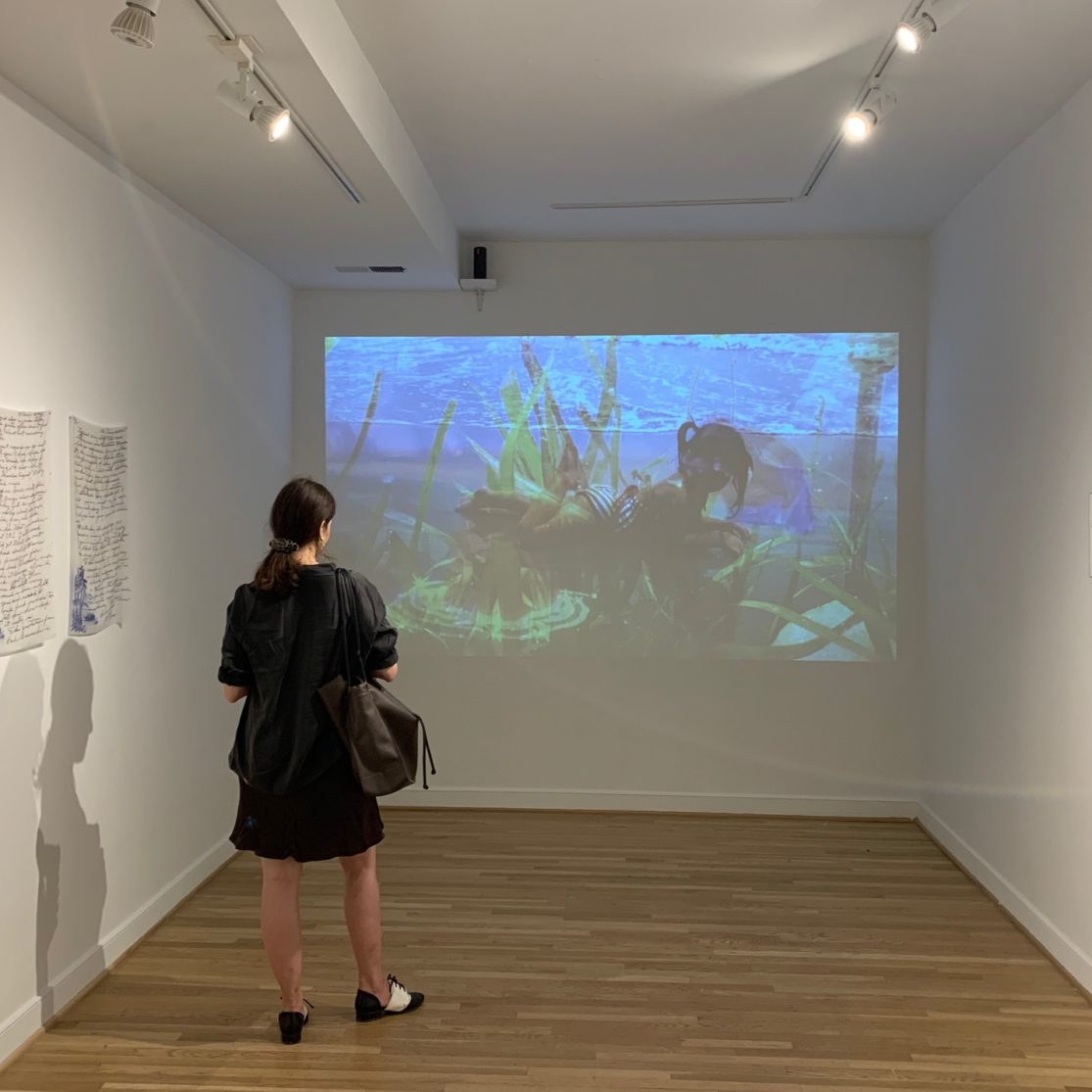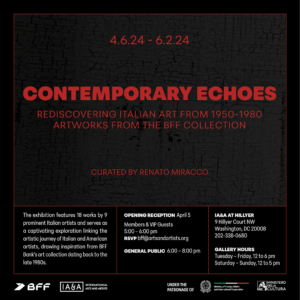Newly Selected Artists, July 2022
Gabrielle Lajoie-Bergeron
Mascha-Le Gros Party
Mascha – Le gros Party questions the notion of celebration in the intimate, public, and political space. Highlighting evocative traces of a past event, this vivid new corpus allows us to imagine a universe in itself. Inspired by the figure of the “mascha” — the etymological root of the word “mask,” also meaning witch in Low Latin — the exhibition marshals a vast diversity of works, including a number of faux-visages (false faces) made of various materials. “Le gros party” is a French expression meaning, in common parlance, “the big party.” Inspired by festivities and their rituals, the project questions notions of overflow and excess, and the flashpoint at which fiction and reality overlap. It is about identity, power, and relationships. If the party makes it possible to become someone else — to live a rite of passage — what happens when the event overflows beyond the dancing, the singing, the feast, and the simple drinking? The big party invoked by Lajoie-Bergeron refers to the capricious masquerade that we offer in our time, when the celebration begins to lose its glamor and to lurch into incipient violence and other abuses.
About the Artist
Gabrielle Lajoie-Bergeron (she/her) is a French-Canadian multidisciplinary artist, curator, teacher, and cultural worker living and working in Baltimore (USA). Lajoie-Bergeron holds a master’s degree in visual and media arts from UQÀM (2014) and has been honored with many international awards and grants (MSCA/ Grit Fund / Plein Sud / Canadian Council for the Arts / Quebec Arts and Letters Council / Argentina Art Council). Her work has been exhibited in Canada, USA, Europe, South America, and Africa, and has been published in multiple magazines and newspapers. Over the past ten years, Lajoie-Bergeron has offered numerous cultural mediation workshops.
Artist Statement
My practice questions the mechanisms used in the construction, reproduction, circulation, and normalization of history and images. A broad segment of my work deals with the history of painting and the way in which everything is thrown together. There is a need to reflect on collective and individual narratives through intergenerational and multicultural dialogue. Taking a feminist approach, my explorations bear on the concepts of territory — wild, intimate, public — and belonging, to oneself and others. How should we think about the territorial conquest and appropriation today? How do we delve into them, extract ourselves from them and smash them? Through a series of paintings, drawings, small sculptures, embroideries, objects – found or given – and snippets of written texts, my practice calls into question our interpretations and segmentation of the world, of the body, of history – both in its smaller and larger stories.
Kate Fitzpatrick
There is no anagram for the word anagram
An anagram is a word formed by rearranging the letters of a different word, using all the letters. Any word that exactly uses those letters in another order is called an anagram. Whether as a literary game, cipher, mysterious verse, or poetry, anagrams provide a channel for making new meaning out of fixed ideas. Anagrams are anchored to their assigned positions and are limited due to their language rules, which are based on a collectively agreed-upon system.
There is no anagram for the word anagram playfully explores the idea of language and meaning by using an imaginary sign system to take the form of text, images, and objects, to break down the construction of our own arbitrary reality. The graphic potential of a sign invites the viewer to consider the possibilities that exist in arrangements that fill in the gap between image and text to explore meaning. In this exhibition, paintings, games, video, and objects offer a dynamic by which to wonder and to create personal meaning through indecipherable signs, which become a vessel for schema and a pathway to search and interpret.
About the Artist
Kate Fitzpatrick is an artist and educator based in Alexandria, VA. Fitzpatrick received a BFA in painting from Clarion University of Pennsylvania (1997), an MA in art education from University of New Mexico, and an MFA in drawing and painting from George Mason University (2020). She was awarded a Fulbright Fellowship (2016), through which she spent a semester in India working on an art curriculum with local arts teachers. Fitzpatrick is also an art educator who was honored by the Northern Virginia Magazine as a “Northern Virginian of the Year” (2014) for her creation and implementation of an art and yoga program for youths in the Northern Virginia Juvenile Detention Center. In addition, Fitzpatrick received the Washington Post’s Agnes Meyer Teacher of the Year Award (2013). Fitzpatrick exhibits her work throughout the US and teaches for Arlington Public County Schools.
Artist Statement
Sign systems play a crucial part in the social construction of our reality and we often cannot separate these systems from our own experiences. We take understanding these signs for granted and don’t often think about how we came to recognize these signs or if others see them as we do. However, sign systems can take the form of words, images, sounds, body gestures, and objects. All signs communicate something that we may or may not understand based on our own culture and experiences in the world at large. I explore the gap that exists between image and text. The basis of my work centers around my own sign system to create interpretive spaces filled with unknown letter forms. Repetitive glyphs appear as mantras or broken language, glyphs gather and float away, thread is stitched or rolled into a ball, and paint is scraped away to reveal new worlds.
Kristin Adair
Unconditional
Unconditional is a multimedia exploration of the legacy of love that we carry within us as human beings. We are the accumulation of the relationships that came before us, that brought us into the world. Through the pandemic, I have investigated my love map through the lens of a box of letters my grandfather wrote to my grandmother while he was stationed in the South Pacific for three years during World War II. I weave a tapestry of images in both paper and video form, including archival images that my grandfather made during his deployment and other found materials, with visual explorations of my own body, examining the experience during the two years of the pandemic of isolation and my own search for connection and true love. The series Unconditional uses both physical and digital manipulation to combine old and new photographs with archival and new audio, weaving stories of the past — those that live inside of me, the present, and the future of my own latent lineage.
About the Artist
Kristin Adair is a Washington, DC-based documentary filmmaker and multimedia artist with a background in law and nonprofit advocacy, as well as a lifelong commitment to the work of justice, healing, and creative transformation. She is the founder of Unchained Stories, a social impact production company that uses collaborative film, video, and multimedia art to help create a more just world. Her creative and impact work bridges documentary film, photography, and multimedia. Kristin believes visual stories are the most powerful means to encourage dialogue, promote connection and compassion, and inspire social change. In her personal practice, she explores photographs and moving images as a unique language to build poetic narratives that are intimate, emotional, and transformative.
Artist Statement
As a filmmaker, multimedia artist, educator, and advocate, I believe visual stories are the most powerful tools we have to encourage dialogue, promote connection and compassion, and inspire social change. I am committed to collaborative art- and media-making that creates pathways to inner and outer transformation through self-reflection, personal and community healing, and restorative justice. We are living at a transformational moment. The way we will dismantle systems of oppression is through art and stories that reimagine a different world. I continue to deepen my work and collaborations towards this vision for a radical way of healing and safety within ourselves and in our communities, justice built on love rather than retribution.

